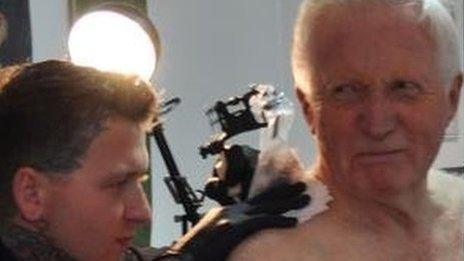David Dimbleby to leave Question Time
- Published
Some memorable moments from David Dimbleby's tenure as Question Time host
David Dimbleby is to leave Question Time after 25 years on the BBC's flagship political programme.
The presenter, who will leave the show at the end of the year, said it was "the right moment" to go.
The 79-year-old, who has chaired the show since 1994, insisted he was "not giving up broadcasting" but planned "to return to my first love: reporting".
BBC director general Tony Hall called him "a titan in British broadcasting" and a "champion of the public".
Dimbleby, who began his broadcasting career more than 57 years ago, is the longest-serving presenter of Question Time.
In addition, he has been the BBC's main presenter for all general elections since 1979, as well as the chief commentator for many state occasions including the funeral of Diana, Princess of Wales, in 1997.
In 1975 he presented the BBC's coverage of the first referendum in Europe, a role he repeated in 2016 for the BBC's coverage of the EU referendum.
Speaking about his quarter of a century at the helm of Question Time, he said it had been "exhilarating following the twists and turns of British politics".
"It has been a privilege to work for a programme which brings voters face to face with those in power," he said.
The show has hosted many of Britain's most prominent politicians, as well as contributors as diverse as academic and writer Germaine Greer and BNP leader Nick Griffin.
Last year saw him throw out one member of the audience after they repeatedly interrupted panel members during a Question Time edition filmed in Plymouth.
He also revealed a less serious side, when it was reported that at the age of 75 he had got his first tattoo, of a scorpion, to represent his star sign.
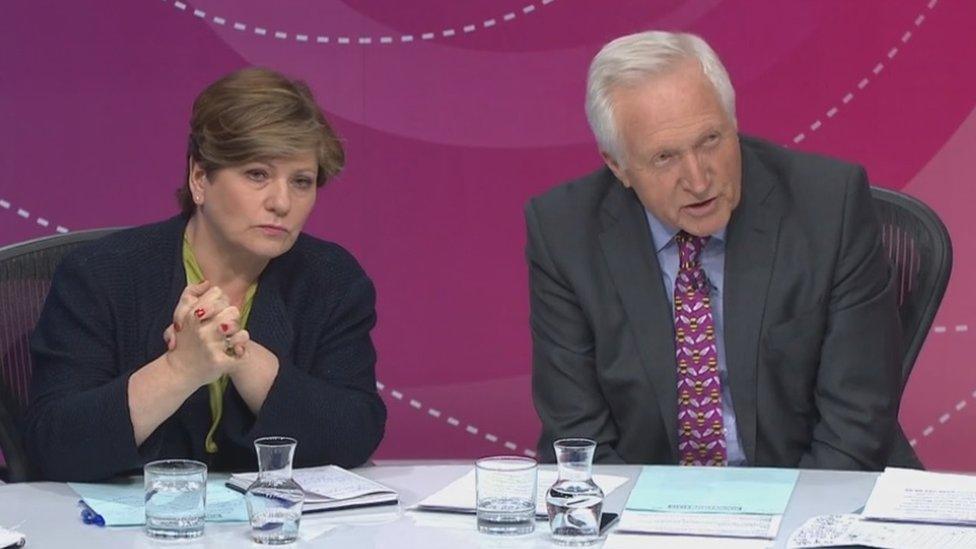
The show has hosted politicians from across the political spectrum, including Labour frontbencher Emily Thornberry
Paying tribute, Lord Hall said: "David has been at the helm of Question Time for over 25 years: a brilliant champion of the public and the audience's friend - getting the answers they want on the big and difficult issues of the day.
"Always a commanding figure, David has ensured Question Time has not only stayed relevant through the years, but a must watch for those interested in politics and current affairs."
Dimbleby's final broadcast on Question Time will be on 13 December 2018 - but there is no word yet on who will replace him.

Potential successors
Newsnight presenter Kirsty Wark recently told Good Housekeeping magazine she would be interested in taking over the role and would "throw her hat in the ring" when Dimbleby stepped down.
Other suggested contenders include her fellow Newsnight presenter Emily Maitlis, Fiona Bruce, John Humphrys and Huw Edwards.
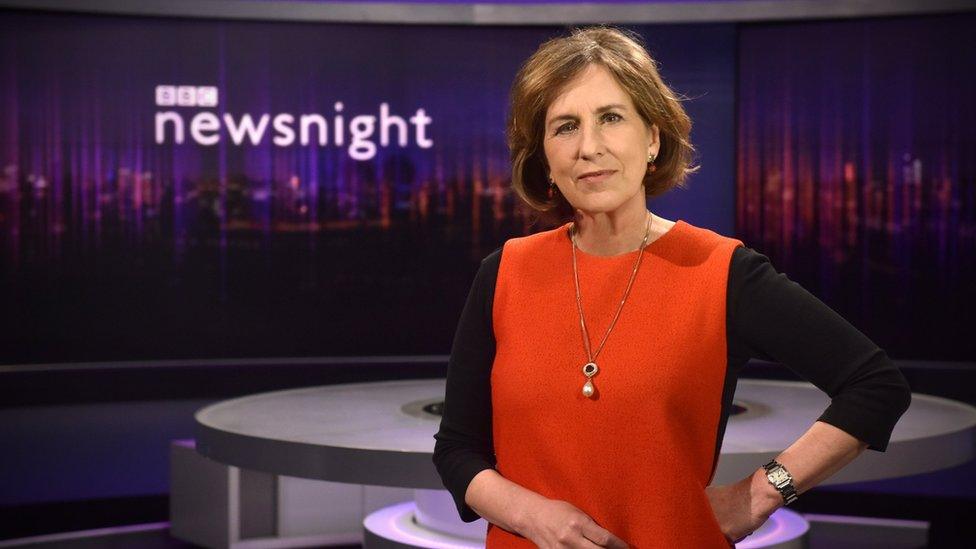
Wark has expressed interest in the job
Some are calling for the programme to have its first female presenter.
Labour MP Liz McInnes sent her best wishes to Dimbleby and spoke of her keenness to see a woman at the helm of the show.
Allow X content?
This article contains content provided by X. We ask for your permission before anything is loaded, as they may be using cookies and other technologies. You may want to read X’s cookie policy, external and privacy policy, external before accepting. To view this content choose ‘accept and continue’.

It is not known how much Dimbleby is paid for his role because Question Time is made by an independent production company, meaning his salary did not appear in last year's list of top paid BBC stars.
Recent reports in the Telegraph speculated that he was paid £450,000 per annum by the corporation.
Question Time has been on air for nearly 40 years. It was initially chaired by Robin Day (1979-89) and later by Peter Sissons (1989-93).
- Published8 June 2017
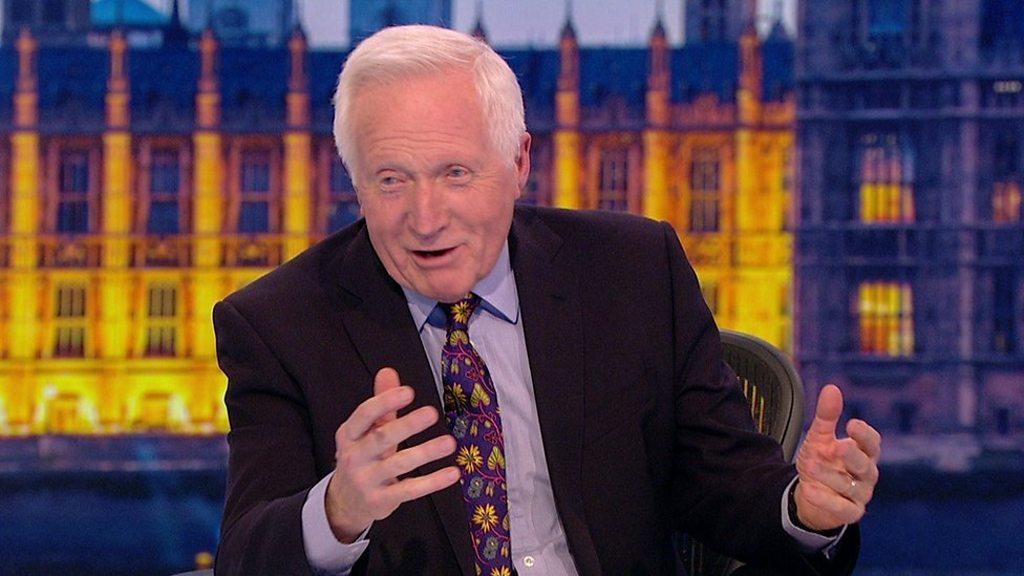
- Published23 August 2016
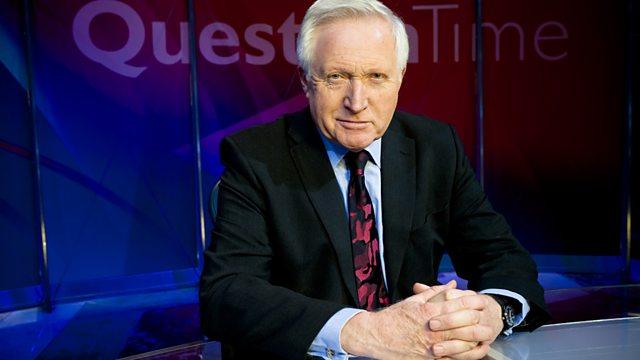
- Published20 February 2014
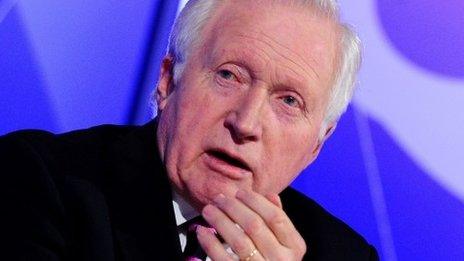
- Published12 November 2013
